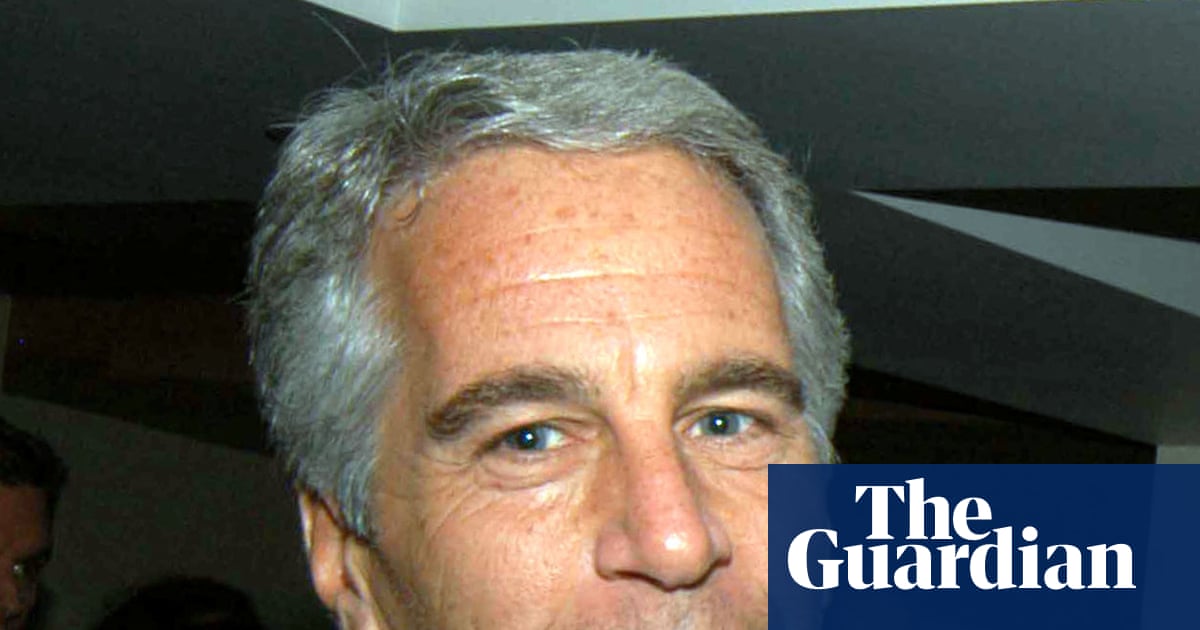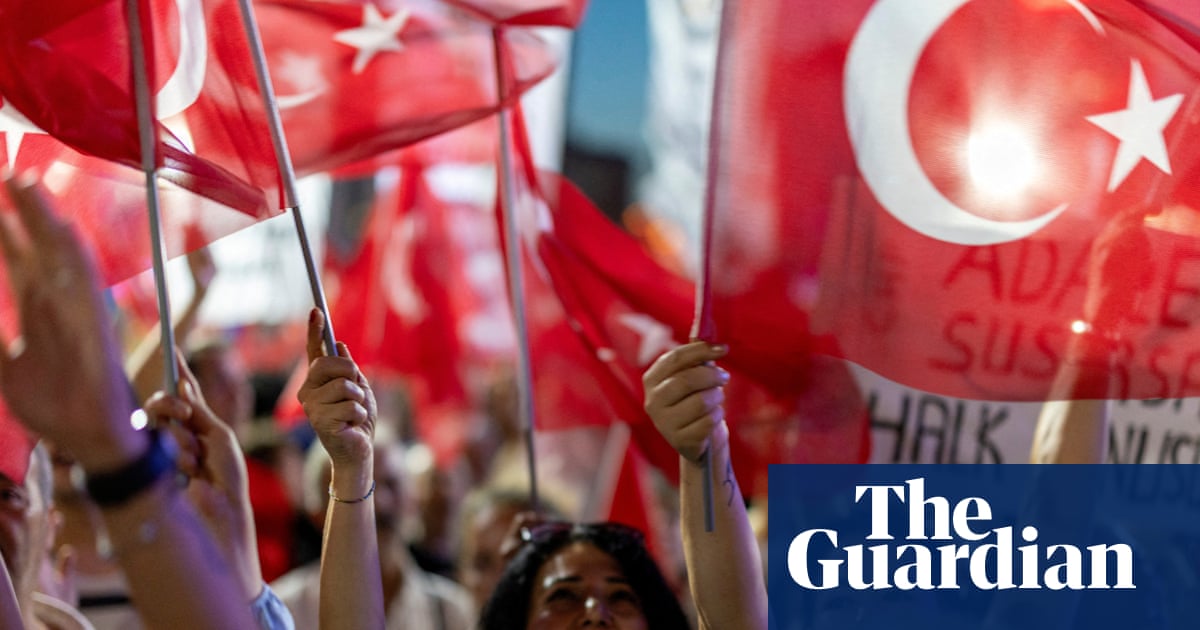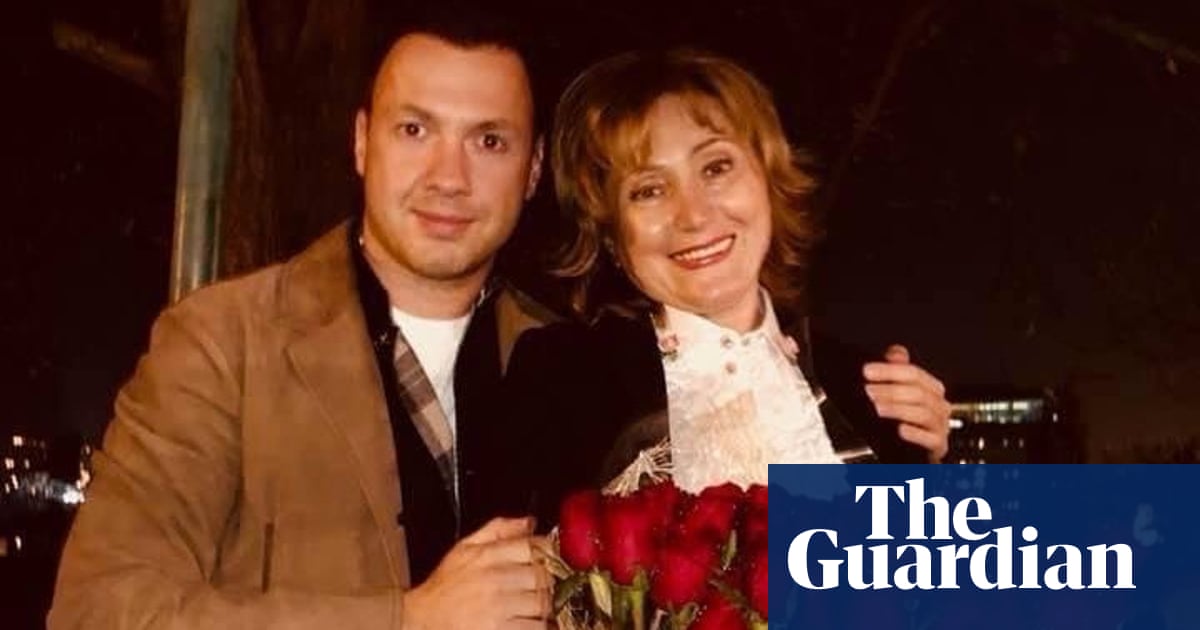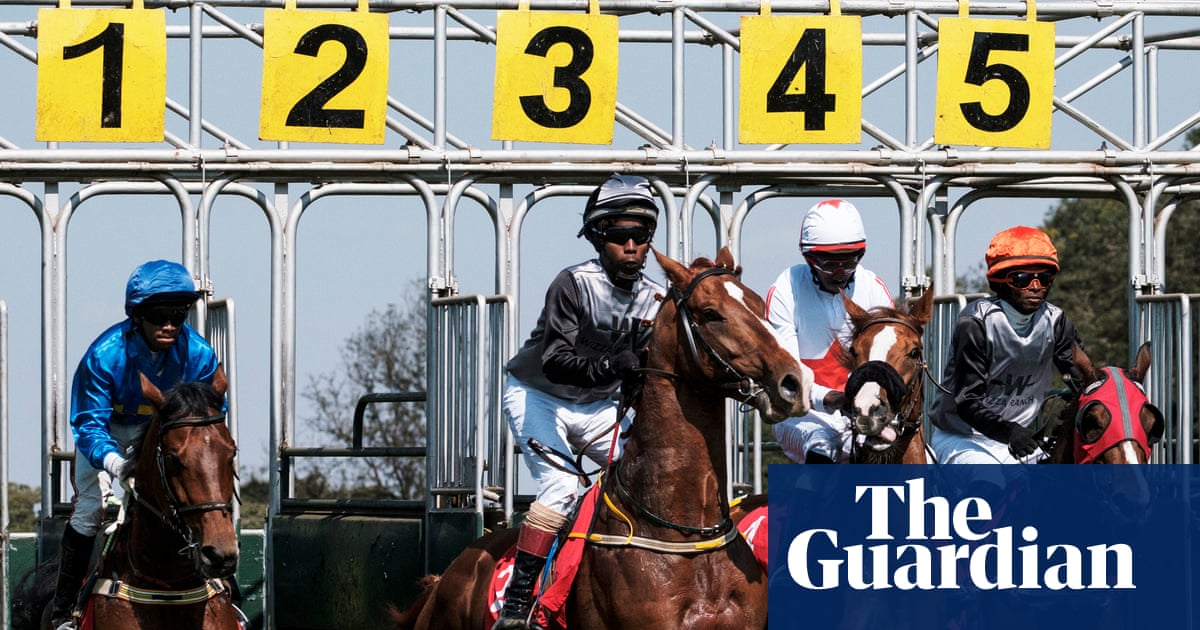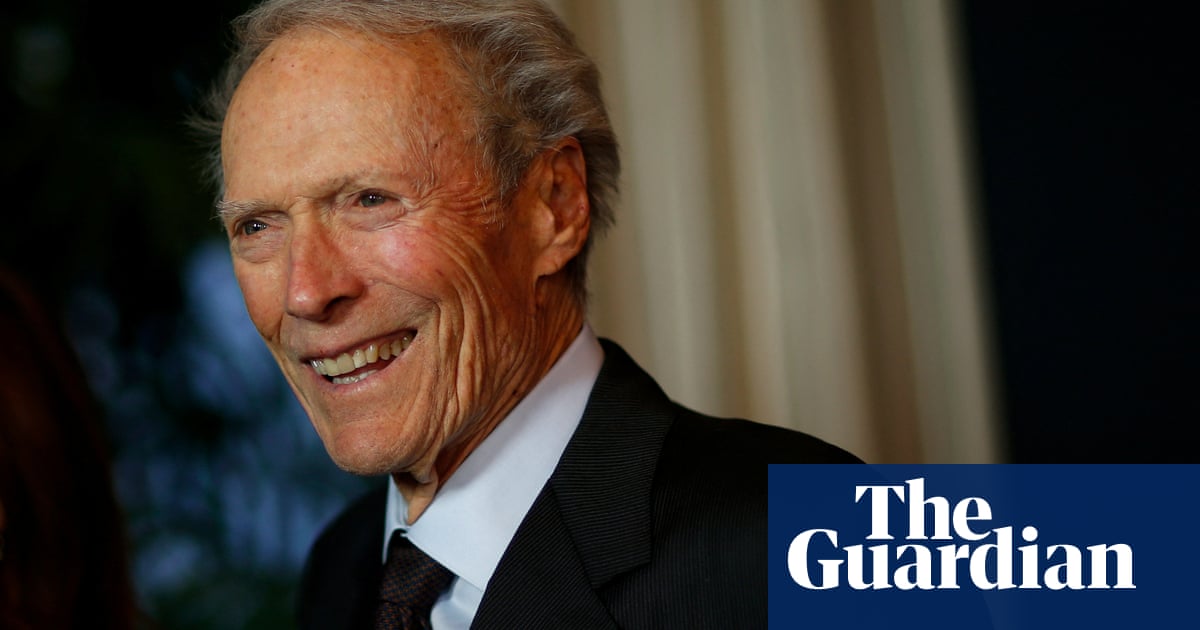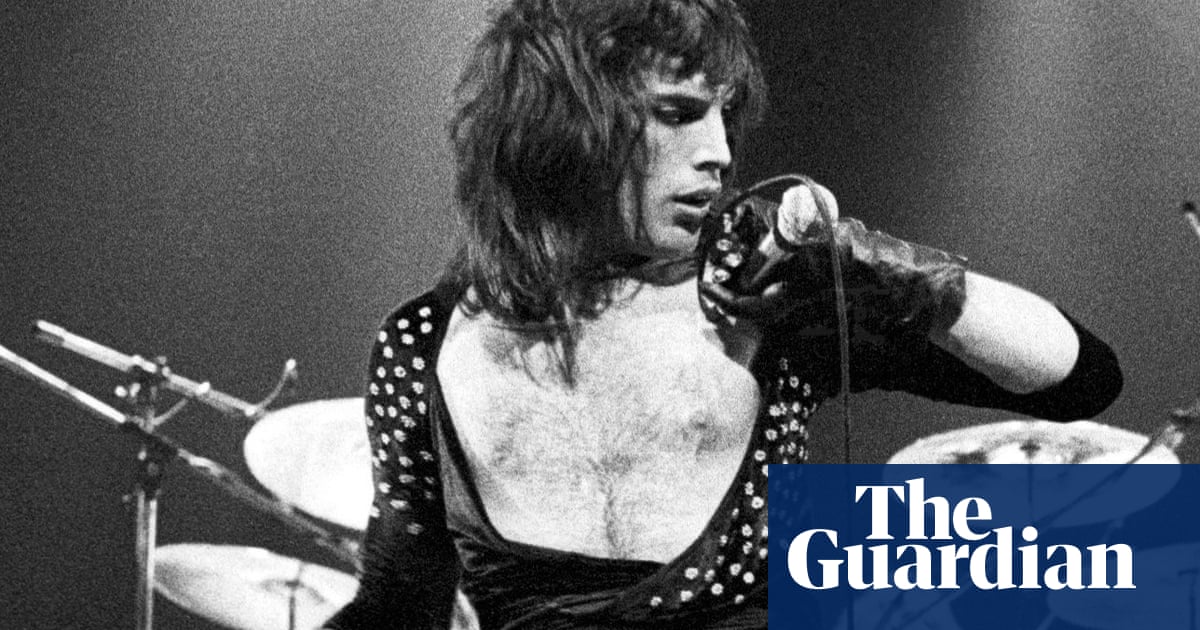Despite all they have endured, it doesn’t take much to draw shy smiles from Diana Shikot, 24, and Dmytro Chorny, 23.
You could ask them about Chorny’s sweetly bungled marriage proposal the day after his release from Russia’s notorious penitentiary system, in which he languished as a prisoner of war for three years.
The proposal was made in their home town, Kropyvnytskyi, in central Ukraine, eight weeks ago. It was here where they first started to date when the then 16-year-old Shikot asked Chorny, 15, to walk her home.
Chorny had a whole speech prepared but in the moment – with his friends and prospective mother-in-law looking on – he was overcome, barely managing to get out “Will you marry me?” as he got down on one knee.
Or you might ask about the love letters – there were hundreds of them – that Shikot sent week in week out, stubbornly ignoring the lack of replies.
None got through to Chorny in the first two years but when a prison guard handed him a folded piece of paper a few months ago he could make out the outline of a heart even before he opened it. His face ran with tears as he stood silently among the others in the cell, all in their blue boiler-suit prison uniforms.
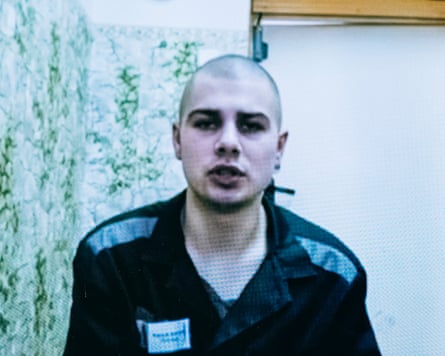
Shikot and Chorny, who married last Saturday, are all smiles today. Shikot says that Chorny is the same man who left her as a 19-year-old on 1 January 2022 to continue his military training as a driver in the marines. “He’s not changed to me,” she said.
That is difficult to believe. Three psychologists have worked with Chorny since his return. With limited success so far, he admitted.
More than 5,000 Ukrainians have been released from Russian captivity under swap agreements since February 2022 and for all the joy and relief that this has brought, the impact of captivity on the mental health of these often young men and women can be profound.
Chorny feels anger bubbling up inside him sometimes. A trigger came when a shop assistant refused to respond to him when he spoke Russian, the language in which he feels most comfortable. “I held it in but I get angry because I was there, and you are sitting here,” he said. “And why the hell are you going to tell me what language to speak?”
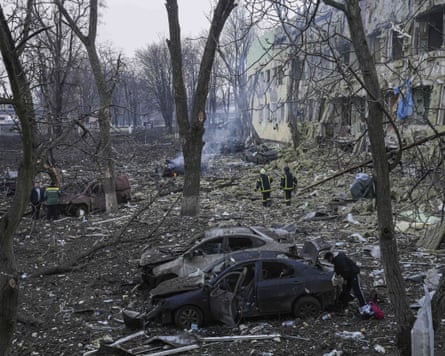
Then there is the anxiety triggered by any sound that resembles that of an aeroplane.
And he is, at times, still irrationally jealous of Shikot’s time with others.
That jealousy began between the beatings in the Russian cell when he considered what he had lost and obsessively thought about how Shikot must surely have moved on.
She had instead been campaigning hard for his release, joining public demonstrations every week, writing to anyone who would listen and lobbying the Russian authorities for word of his health.
Chorny joined the marines in late 2021 after deciding that his initial idea of a law career was not for him.
He was brought up by his grandparents after his father walked out when he was two, followed by his mother five years later. Something about the discipline and comradeship drew him to the army.
His basic training was in Kherson in the south but next was a nine-month tour on the outskirts of the Black Sea port of Mariupol.
The war came hard and fast at Mariupol, now occupied and a byword for Russian terror.
At 4am on 24 February 2022 he heard the Russian Grad rocket launchers fire and Chorny’s 501 brigade was one of the first to engage in direct battle.
He was ordered to gather shells in a truck and drive them to a former prison that was being used as a military base.
As he arrived, he heard the sound of a fighter jet swooping low.
“I thought it was our fighter,” he said. “I heard him coming back. And I saw rockets. Everything was in slow motion. I was just standing there and watching. The missiles begin to fall everywhere.”
He threw himself to the ground: “There were screams, everything is black. I can’t breathe, everything is in smoke. I run and see torn bodies, legs. One man had been in the toilet, he had been thrown from it and was just twitching on the ground.”
Survivors made their way to a bunker from where they were told to gather at the Azovstal metallurgical plant.

By now the Ukrainian artillery was all but destroyed and Chorny was ordered to join the infantry as they established a doomed perimeter around Mariupol’s city centre.
Russian fighter jets, bombers and artillery destroyed every building, Chorny recalled. There was no hiding place. He resigned himself to death.
A Starlink terminal providing internet access offered a chance to send what he believed would be a final message on the Telegram social media site to Shikot on 12 March.
“Everything is fine with me,” he lied. “I love you so much and miss you. I hope everything is OK with you. I hope you will send me a message x.”
Shikot said she had no idea what was happening. “All good, Dmytro? Call me as soon as possible. I also love you very much. I’m looking forward, waiting for you.”
But the Azovstal plant was surrounded and attempts to break out ended in disaster. Its defenders were forced to retreat underground. Food was so scarce that dogs were killed for their meat.
Chorny’s phone was smashed when he dived for cover during a helicopter attack. He asked to use a comrade’s mobile to send a message to Shikot: a plus sign, a military way to confirm that he was alive. At this point his commanders concluded that they would have to surrender.
On 12 April, the Ukrainian troops were ordered to lay down their weapons, remove their protective vests and walk out with their hands in the air under the gaze of Russian snipers and machine gun operators.
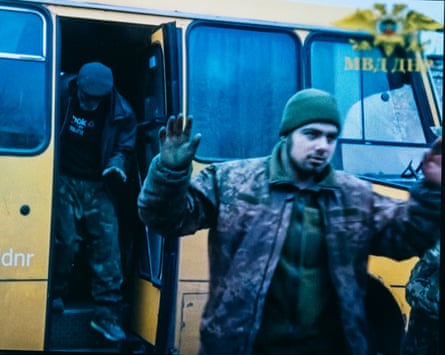
School buses took them to an old farm where they were herded into large chicken sheds. The soldiers’ documents were taken and they were given food and tea.
It was to be almost Chorny’s last humane experience for three years.
The following day they were transported on trucks to Olenivka, a notorious prison in occupied Donetsk.
“Our truck arrives, the door opens, you say your name, rank, date of birth,” Chorny recalled of his arrival. “You jump, and the first baton hits you in the back of the head. They stand on the sides, and while you are running, they beat you.”
The soldiers were ordered to sit in lines in a yard where prison guards screamed in their faces. “If you move, you’re screwed,” Chorny said.
They were hurried to a barracks and beaten again with batons as they ran.
There they were kept for three days before buses arrived to take them to a prison in Kamyshin, southern Russia.
“Someone came on the bus and said, ‘Guys, I advise you not to fall. It will not help you. If you fall, you will harm yourself,’” Chorny said.
It was a prelude to another barbarous reception party. “We were beaten again as we ran, with rubber batons with spikes and electric shockers,” he said.
Chorny was put in the star position and interrogated. They wanted him to admit to firing on civilians or stealing from them. “And if they didn’t get the right answer, there were more beatings,” he said.
He was housed in a barracks with 70 other men. They had to stand all day and were given pieces of paper on which were printed the Russian national anthem and the Soviet-era song Katyusha, to learn by heart.
Those who failed were hit at the knees. Others were bitten by guard dogs let off the leash.
They were filmed singing the Russian songs but banned from talking. The only distraction was schoolbooks on Russian literature on which they were randomly tested at mealtimes.
After a few weeks Chorny was moved to a punishment cell. And in a cell he stayed – for three years. Then there were the interrogations. “It was not a questioning process, it was torture,” Chorny said.

His head was covered with a bag, still soiled by the snot, saliva and blood of the last victim. Wires were attached to his fingers that led to a military phone that the guards called Igor. When it was wound up, it created an electric charge.
Chorny said: “They said, ‘This is Igor, let’s get to know each other. He loves the truth. When you tell him the truth, he recognises it.’”
He was interrogated on one occasion for three hours. “They shoved a stun gun between my legs, you know, a stun gun that kills cows,” he said. “They said, if it drops from your legs, we will use it on you.
“I came back in the evening, I was just thrown into the cell. My whole body was atrophied. My mouth didn’t work. The guys who were with me, they took a spoon and fed me.”
In the end, he told the Russians what they wanted to hear. “I can’t talk about it,” he said of his filmed “confession”.
Then it was to a prison in the Volgograd region from 27 May to 1 October 2022. He was put in a cell for four and thankfully the prisoners were allowed to sit during the day – but not to talk.
“A camera was right next to your face,” he said. “The slightest movement of the mouth, immediately a call on the speaker and they start to pump you [beat you up].”
After that it was Ryazhsk, 300 miles south of Moscow, where he stayed until February 2023 and then on to the Russian republic of Mordovia, 400 miles east of the capital. Until his release he was put with 10 men in a cell made for four.
“You just had to stand in the cell, you couldn’t turn your head, you couldn’t even look someone in the eyes, just head down to the floor,” Chorny said.
There were no seasons in jail. The prison guards said nothing of the world outside, he added.
A Russian radio station blasted out from 6am to 10pm, playing history lectures and patriotic songs. Those who spoke, or faltered as they stood, would provoke a collective beating.
Some felt so guilty at this that they smashed glass in the windows to cut their wrists, Chorny said. Their colleagues rushed to their aid.
Each man had his own way of dealing with the pressure. Chorny dried out a few chicken bones from his lunchtime soup and whittled them down to become sewing needles. These he used to tighten his prison trousers around his withering frame. He also tried hard to avoid thinking of home, to dispense with any hope of release.
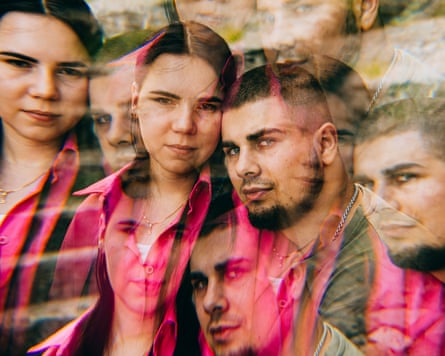
On two occasions, when Russia’s human rights ombudsman was visiting, he was allowed to write letters to his grandparents. But the words were scripted: “I’m good, they are feeding me well, I have good treatment.”
He was able to add that he wished to “say hello to my beloved princess Diana, I love her very much. Let her remember me and know about me.”
Shortly before his release, Chorny was also allowed to take part in a six-minute video call with Shikot. But it was not until 19 April that a bag was put over his head for the final time and he was put on a plane to Belarus for a prisoner swap of 246 soldiers on each side.
Chorny spent a month in a rehabilitation centre and said he now felt well physically and hoped the psychological scars would heal with time. But it may prove difficult to accept the world at it is instead of the idealised version he held in his head for three years.
“The very first rule is to forget that you were once a citizen,” Chorny said of dealing with captivity. “Forget about your girlfriend, forget about your grandparents, completely separate yourself from your past. That is, you have never been there, you were born in captivity, you live in captivity.
“I completely forgot for a month. I forgot her face, I forgot her voice, I forgot the faces of my grandparents, I forgot the voices, I forgot everyone. But, of course, you dream.”

 2 months ago
46
2 months ago
46


